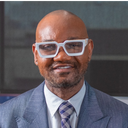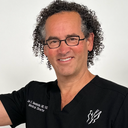In the USA, in order for a person to call themselves a "hair restoration surgeon", one only needs two things:1) a medical license (e.g.: graduate medical school and do one single year of internship in any area of medicine)2) the desire to call oneself a "hair restoration surgeon"That's it. No kidding.There are no formal medical nor surgical training certificates required. Nor is an ABMS (American Board of Medical Specialties)-recognized Board Certificate in any medical or surgical specialty whatsoever. For example, a psychiatrist who has been doing nothing but talking to patients for the past 15 years may decide this afternoon to go to Kinko's and print up a "Hair Restoration Surgeon" sign, hire some independent contractors, get out some instruments, and the very next day, try his or her hand at performing a hair restoration surgery without a single minute of preparation, training, or experience. Happens every day in this country.There is a board certificate in Hair Restoration Surgery. However, the Board is unfortunately not recognized by the ABMS, and does not have the infrastructure to establish training programs to teach physicians interested in hair restoration surgery how to do it. For instance, to obtain an Ear, Nose, and Throat (ENT) Surgery board certificate requires one obtain a medical license, then spend 5-6 years in an intensive surgical training programs working roughly 65-85 hours a week in surgery training for all those years. Then, after those 5 or 6 years of supervised training by very experienced Board Certified ENT surgeons, an applicant surgeon who has completed those years must then sit for a 2 day, 16 hour written exam. Then, the surgeon must pass 16 hours of oral examination over 2 days by leaders and top surgeons in the field in ENT. It's a near-decade long process. And that's to perform tonsillectomies, which take about 15 minutes.A board certificate in Hair Restoration requires one to go to medical school, obtain a medical license, which can be obtained by doing a single year doing internal medicine at a community hospital. Then one will need to take a one day test. There is no surgical training required. There are not 5 years of practical training by experts in the field. Further, getting a board certificate in Hair Restoration is absolutely not required to perform hair restoration surgery.Why is there such a huge difference? With a tonsillectomy, or most surgeries, it can be dangerous, and if you don't know exactly what you're doing, you may seriously injure or kill somebody. With hair restoration, because it's surgery on the scalp, and not millimeters from the internal carotid artery that feeds the brain (like with a tonsillectomy), a physician would pretty much have to go out of his way to kill a patient. So, the government has allowed any doctor of any background, with or without any surgery training whatsoever, to call him or herself a "hair restoration surgeon." This should explain the startling differences in the results that various physicians are able to accomplish. I call it the "Wild West" of medicine because there is absolutely no oversight, aside from the State Medical Board itself. A physician may offer the service in any way he or she sees fit. I recently read an article where the surgeon was using box cutters from Home Depot to divide the hairs. I wish I were kidding.In choosing a surgeon to perform your procedure, it's important to choose one that has dedicated his career to the practice. This is a growing field of medicine, and many cosmetic surgeons are buying a device and adding "hair restoration" to their menu of services. There are many dedicated surgeons in the USA who run excellent practices. However, this is not typical. You should feel perfectly comfortable asking your doctor for his resume, and whether he or she has earned an ABMS-recognized Board Certificate in a surgical specialty. The overwhelming majority of providers in hair restoration surgery do not have such training or Board Certificates in a surgical specialty, so it's important to ask. The experience of the surgeon, and the dedication of the practice to hair restoration will be the main factors that separate "just ok" results from the outstanding results. No machine of any brand can guarantee excellent results all by itself. It's the experience and dedication of the surgeon and his practice.





